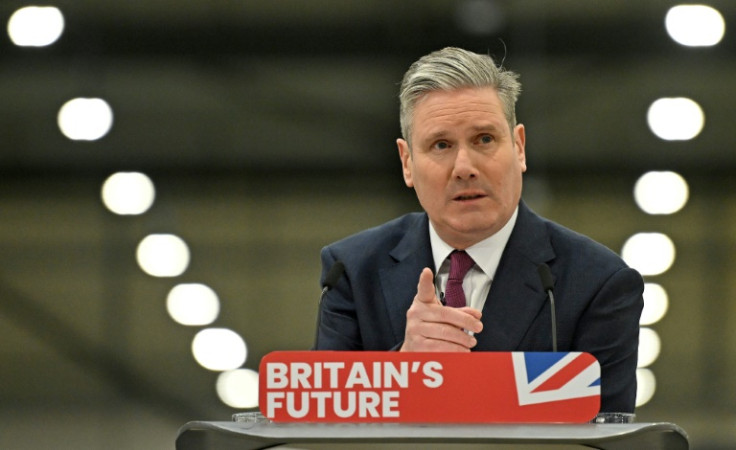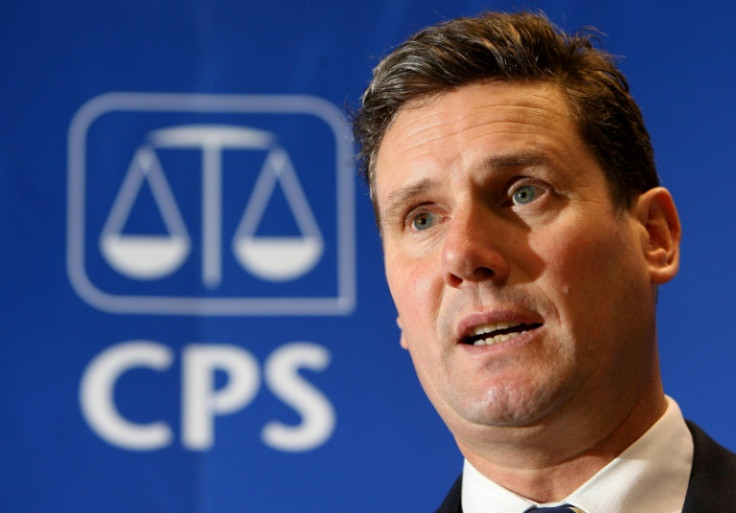'Skeletons In The Closet?' UK Govt Bashes Opposition Leader Starmer
Britain's ruling Conservatives are stepping up personal attacks on opposition Labour leader and former prominent lawyer Keir Starmer, who is tipped to become prime minister after the next general election.

Britain's ruling Conservatives are stepping up personal attacks on opposition Labour leader and former prominent lawyer Keir Starmer, who is tipped to become prime minister after the next general election.
Prime Minister Rishi Sunak's Tories and sympathetic right-leaning newspapers are targeting Starmer's record as a leading human rights lawyer and public prosecutor in a bid to haul back support from his centre-left party.
Political scientists view the broadsides as an increasingly desperate tactic by a government that is running out of ideas and probably in its death throes, after 14 years in power.
"Are you a terrorist in need of legal advice? Better call Keir," read a mocked-up poster published by the Conservatives this week on X, the social media site formerly called Twitter.
"When @RishiSunak sees a group chanting jihad on our streets, he bans them. Keir Starmer invoices them," the party added in an adjacent comment.
The dig related to advice that Starmer gave the Islamist group Hizb ut-Tahrir in 2008, when the organisation challenged a ban on its activities in Germany.
The government in London this week declared Hizb ut-Tahrir a "terrorist" organisation and banned it from operating in the UK.
Sunak said during the weekly prime minister's questions in the House of Commons on Wednesday that the now-proscribed group had once been "a client" of Starmer's.
"If Keir Starmer wasn't leader of the opposition, he'd be representing a lot of these people still today," Sunak's press secretary told reporters afterwards.
A Labour spokesman stressed that Starmer did not formally represent Hizb ut-Tahrir, and shortly afterwards became the chief state prosecutor in England and Wales.
"The nature of being a lawyer is that you represent and give advice to a whole range of clients, including people that you don't agree with," he added.
The brickbats fit a pattern. Britain's Tory-supporting press recently reported that Starmer had represented an Irish Republican Army member and hate preacher Abu Qatada.
Labour and legal experts reiterate that Starmer would have been obliged to do so under the "cab rank rule", which ensures that everyone receives legal representation whoever they are.
The personal slights also tie into Britain's so-called culture wars, with 43-year-old Sunak -- a privately educated former investment banker -- fond of accusing Starmer, 61, of being a "lefty lawyer".
Starmer defended a number of salient causes as a human rights barrister, including defending trades unions and anti-McDonald's activists.
He also worked to ensure police in Northern Ireland complied with human rights legislation.
In 2008, Starmer was appointed director of public prosecutions for England and Wales at the Crown Prosecution Service (CPS), a role he held until 2013.
He oversaw the prosecution of lawmakers for abusing their expenses, journalists for phone hacking and young rioters involved in 2011 unrest across England, earning a knighthood, giving him the title "Sir Keir", in 2015.
The privately wealthy Sunak has accused Starmer, the son of a toolmaker and a nurse who ran a donkey sanctuary, of being "soft on crime, soft on criminals", and has dubbed him "Sir Softie".
Starmer told an ITV documentary this week that "of course" there will have been mistakes committed during his tenure leading the CPS.
"But there'll be no smoking gun, no skeletons in the closet," he insisted.
A YouGov poll released this week found Labour 27 points ahead of the Conservatives, before the election, the date of which Sunak is yet to announce.
The survey put the ruling party on only 20-percent support, suggesting it is heading for a landslide defeat.
The Tories have presided over a crippling cost-of-living crisis in recent months, record waiting lists for hospital treatment and served up five prime ministers since the 2016 Brexit vote.
"The cupboard is bare, isn't it?" Robert Ford, a political scientist at Manchester University, said of the motivation for the personal attacks.
"They haven't got much to run on."
Tim Bale, politics professor at Queen Mary University of London, does not think the barbs will land with voters.
"The personal stuff is unlikely to trump the bread and butter issues that are killing this government, most obviously the state of the economy and the National Health Service," he told AFP.

© Copyright AFP 2025. All rights reserved.





















